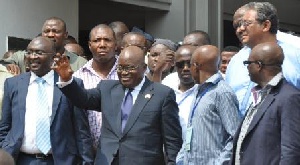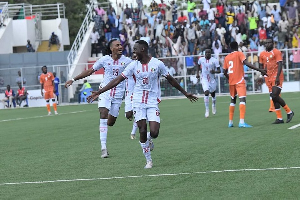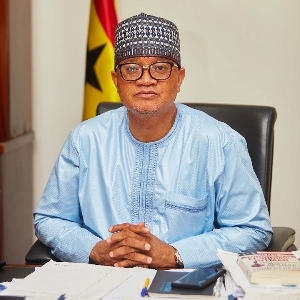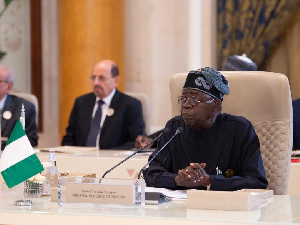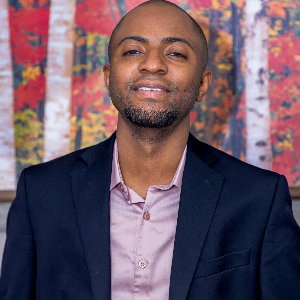A – Amicus curiae; Don’t we all love Mr. Benoni Tony Amekudze and his introduction into the election petition of his ‘Amicus curiae’ brief. Amicus curiae is a latin term meaning “friend of the court”.
An amicus curiae brief is an application that brings to the attention of the court a relevant matter not already brought to its attention by the parties and may be of considerable help to the Court.
Mr. Amekudze wanted to draw the attention of the court to some relevant provisions of the law that were being violated. He was, however, thrown out.
B – Biometric Verification; Biometric verification is any means by which a person can be uniquely identified by evaluating one or more distinguishing biological traits. The oldest form of biometric verification is fingerprinting. The biometric verification machines were for the first time introduced in Ghana’s elections.
There were instances where the verification machines failed to recognize some prospective voters and not even the use of coca cola, kerosene or ‘pito’ could re-establish the fine line prints on the finger.
C – Contempt; contempt of court may result from failure to obey a lawful order of a court, showing disrespect for the judge, disruption of the proceedings through poor behaviour, or publication of material deemed likely to jeopardize a fair trial.
The mention of contempt immediately brings to mind the ‘incorrigible’ Ken Korankye and the ‘irresponsible’ Atubiga who were handed custodial sentences.
Also in contempt were the General Secretary of the opposition New Patriotic Party, Mr. Kwadwo Owusu Afriyie and a Communications team member of the party, Hopeson Adorye who escaped custodial sentence with some hefty fines. Lucky Sammy Awuku had a verbal reprimand.
D – Defense Counsel; A Defense counsel is usually hired by the person accused and represents the accused throughout the legal process. Counsel for first respondent (President Mahama) was Tony Lithur, Counsel for second respondent (EC) was Quarshie Idun, Counsel for the third respondent (NDC) was Tsatsu Tsikata and Philip Addison was the Counsel for the Petitioners.
E – Election Petition; An election petition refers to the procedure for challenging the result of a presidential or parliamentary election or local government election. In Ghana Article 64(1) of the constitution provides:
“The validity of the election of the president may be challenged only by a citizen of Ghana who may present a petition for the purpose to the Supreme Court within twenty-one days after the declaration of the result of the election in respect of which the petition is presented.”
F – Fifty sitting days; There were exactly fifty days of court sittings spanning some five months. The proceedings commenced on April 17th, 2013, and the final verdict was delivered on August 29th, 2013.
The 50 days of court arguments were broadcast live on radio and television, captivating the country and causing anxiety as well.
G – Gyan; Afari Gyan is the chairman of the Electoral Commission of Ghana, an astute political scientist and election administrator.
Some have said if he had handled the 2012 elections like Sir Alex Ferguson’s speed and precision of chewing a gum, maybe we will not have gone through the rigmarole of an election petition.
But give Afari Gyan his due, election victors will always hold him in high esteem whiles the vanquished see him as the devil incarnate. One major lesson that we all learned was that going to court is not easy.
H – Holiday; Thursday 29th August, 2013, was like a holiday in Ghana. As the country awaited the landmark Supreme Court judgement, the fear of violence on the day led to closure of shops and stalls, deserted markets, closed schools and empty streets. Maybe we all forgot to calculate the loss of productivity to the nation.
I – Issues for determination; The six issues for determination were; Overvoting, Voting without biometric verification, Absence of signature, Duplicate pink sheets, Duplicate Polling Stations and Unknown polling stations
J – Joinder motion; The NDC filed a joinder motion to join the respondents as an interested party in the case. They argued that since the NDC offered President John Mahama the platform to contest for the presidency and it was thus an interested party. The joinder motion was granted by 6-3 majority decision.
K – KPMG; The respondents continuous complain of under-supply of pink sheets used as evidence by the petitioners led to the court’s order for an independent referee, KPMG, to audit the actual number of pink sheets submitted by the petitioners.
The auditing process by KPMG did not come without controversy, amidst the accusation of additional boxes smuggled into the registry’s strong room. KPMG went through all the troubles free of charge to the nation.
L – Legal terms; Legal and court terms such as “I put it to you”, “I suggest to you”, “objection”, “objection overruled”, “objection sustained”, “Amicus Curiae”, “contempt of court”, “as it pleases my lords”, “Order in Court” and “cross examination” are now on the lips of many Ghanaians.
In a trotro journey from circle to Accra, the day after Sir John was fined for criminal contempt, passengers were divided along the line of whether the NPP general secretary deserved a custodial sentence or a fine.
The chaotic scene made the trotro mate clear his throat and shout: “order in the trotro”, and peace was eventually restored. The mate then had his peace of mind to continue collecting the lorry fares from the passengers.
M - Mahamudu Bawumia; Dr. Mahamudu Bawumia was the star witness for the petitioners in the presidential election petition. The star witness’ star performance in the witness box has led to a section of New Patriotic Party members call for the affable statistician and renowned economist to be in wait as the next flagbearer of the party. The widely acclaimed “Dr Pink Sheets” was last month blessed with a bouncy ‘pink sheet’ baby.
N – Nine Judges; The nine-member panel for the Supreme Court hearing of the election petition were made up of the presiding judge, Mr. Justice William Atuguba, Mr. Justice Julius Ansah, Mrs. Justice Sophia Adinyira, Ms Justice Rose Owusu, Mr. Justice Jones Dotse, Mr. Justice Anin Yeboah, Mr. Justice Paul Baffoe-Bonnie, Mr. Justice N. S. Gbadegbe and Mrs. Justice Vida Akoto-Bamfo.
O – Objection overruled/sustained; an objection is a formal protest raised in court during a trial to disallow a witness’s testimony or other evidence which would be in violation of the rules of evidence or other procedural law.
Before the witness can answer, the judge then makes a ruling on whether the objection is “sustained” (the judge agrees with the objection and disallows the question, testimony, or evidence) or “overruled” (the judge disagrees with the objection and allows the question. We remember the number of times the judges had to go into chambers to rule on objections.
P – Pink Sheets; The form on which the Statement of Poll and Declaration of Result for the office of President and Parliament is recorded is known as the pink sheet. It is called pink because it is coloured pink. The pink sheets were white in colour in 2008 when they were printed in blue.
In the past, pink sheets were issued to political party representatives on A4 sheets, but due to the tendency of their being forged, the EC, in December 2008, introduced the carbonized pink sheets as a security measure.
The carbonised copies were also used in the 2012 elections. These copies are issued to all political parties in carbonised formats, thereby making it impossible for any political party to falsify them.
Q – Quadruplets; According to the Petitioners they had unearthed irregularities on 11,916 pink results sheets. The respondents, however, contended that the pink sheets presented by the petitioners were less than the number, and had rather been double, triple and quadruple counted to make up the huge number.
R – Respondents; A respondent is a person who is called upon to issue a response to a communication made by another. In legal usage, this specifically refers to the defendant in a legal proceeding commenced by a petition.
The First Respondent was John Dramani Mahama, Second Respondent was the Electoral Commission and Third Respondent was National Democratic Congress
S – Serial Number; Occurrence of the same serial number on pink sheets for two different polling stations was one of the vexed issues that the petitioners brought up to annul votes. The argument over serial numbers was given different interpretations.
The Petitioners argued that serial numbers are always unique to each pink sheet and any attempt to duplicate them has the tendency to affect the results.
Dr. Afari Gyan countered that the said the numbers on the pink sheets were generated offshore by the printers and were not serialized and unique. The argument lines were drawn.
T – Televised court hearing; The Supreme Court of Ghana broke convention and for the first time and allowed cameras into the courtroom to enable Ghanaians and the international community to watch the court proceedings live. The Ghana Broadcasting Corporation took the challenge.
Along the line, however, the state broadcaster said it was suffering loses due to the live broadcast of the election petition.
One deputy minister of state gave a solution to GBC, if only they cared to listen. According to the deputy sports minister, Joseph Yamin, the loser of the election petition should be made to pick up the live broadcast costs.
U – United Ghana; The election petition was the first of its kind in Ghana. The final decision of the court was supposed to unite all Ghanaians to showcase our nation as a beacon of democracy and peace. The flurry of peace campaigns from chiefs, religious leaders and civil organizations went a long way to cement our fledging democracy.
V – Verdict; The unanimous verdict of the Supreme Court was that: “the first respondent was validly elected and the petitioner’s suit dismissed”.
W – Witnesses; A witness is one who can give a firsthand account of something seen, heard, or experienced, and can be called to testify before a court.
During the hearing of the election petition, Dr. Mahamudu Bawumia was the witness for the petitioners; Mr. Johnson Asiedu Nketia was witness for 1st and 3rd respondents respectively, and Dr. Kwadwo Afari-Gyan the witness for 2nd respondent.
Remember the NDC promising to bring 4,000 witnesses to the court (haba!), but the judges prevailed and rather allowed 4,000 sworn and written affidavits from the NDC witnesses.
X – Xtra police and security deployments were made during the course of the election petition. Ahead of a Supreme Court verdict the Ghana Police Service embarked on a massive deployment of 32,000 personnel to strategic locations and installations across the country.
Y – ‘You and I were not there’; Ghanaians have made fun of the statement “You and I were not there”, popularized by Dr. Mahamadu Bawumia, the 3rd petitioner in the election petition and the star witness for the petitioners.
Anytime the lawyers for the respondents put any question that relates to what happened at the polling stations, Bawumia would answer “You And I Were No There”, and added “that is why we are relying on what is on the face of the pink sheets”.
Being the accuser and also saying in the witness box that he was not at any of the polling stations and in fact did not witness any of the allegations in person, most people believe was not tactful. Unlike Dr. Charles Wereko-Brobby, I cannot be hauled before the National Council of the NPP for any disciplinary action.
Z – Zzzzzzzzzzz; There was sleeping galore in the courtroom during the election petition. Thank God the television cameras captured a long list of persons who slept in the court, but they surprisingly denied what we all saw.
However, lawyer Kwabla Senanuwho, counsel for 327 persons who applied to join the election petition was bold enough and confessed that he slept during the hearing for the application and was dreaming when he heard the voice of one of the Supreme Court Justices.
But he served notice that if he was provoked, he would mention other lawyers who also slept in court.
General News of Tuesday, 10 September 2013
Source: The Chronicle





